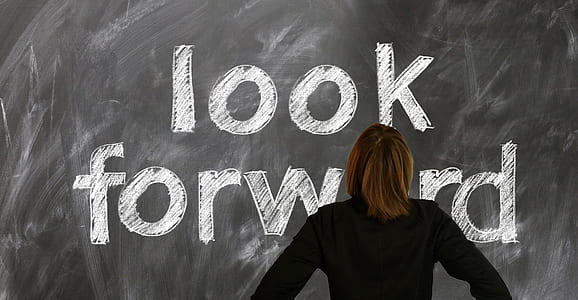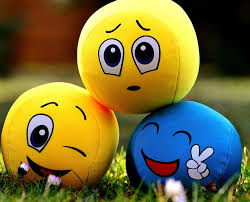This is huge isn’t it? This thing that we’re going through at the moment. This huge transformation of how things work and how we go about our business. As someone who loves to write about how we can look after ourselves, how we can self-care, I have found myself at a loss to write anything. “What do I know?” is how I have felt.

Starting to read a new book this morning (Antifragile by Nassim Nicholas Taleb) I was struck by some things he said which resonated for me (and I’ve only read the prologue!!). Here they are:
“…ones personal experience gives the stamp of authenticity and sincerity of opinion” (p. 15). This is indeed true. If you haven’t lived it how can you write about it.
“I write with my scars, hence my thought is inseparable from autobiography” (p.18). So true. In explaining how things are, and how they might be, you have to weave them into your story. We have gone to great pains in our book to tell a story and offer advice that only includes things we have tried for ourselves when it comes to self-care, well-being, and emotional regulation. That’s why I’ve not written anything yet about ‘lockdown’ and how to thrive in it.
Also, there are too many variables. I am in very fortunate position of not being on the ‘frontline’ like lots of social workers and social work students I know, and have not lost my livelihood as a consequence of the current circumstances. I can largely do my job from home and my family are safe and well. I feel very lucky and humbled by the stories of those who must, and do, continue to go about their roles to maintain some semblance of order for the rest of us.
What do you write in such dire circumstances when you haven’t experienced the circumstances for yourself? I did what I usually do when there’s something I don’t know about; I turned to the books and read, while I experienced personally and vicariously what was going on to try and make sense of our predicament.
It’s strange what you are drawn to at such times. In the same way as ‘rubber-neckers’ can’t resist looking at the car crash I turned firstly to The Plague by philosopher and writer Albert Camus, and discovered by a quirk of fate the writings of Martha Gellhorn in her collection of articles The Face of War covering her time as a journalist from the Second World War to, and beyond, the Vietnam War, and what I discovered fascinated me.

I was delighted in Camus’ fictional narrative to see him write, “…one easily passes the time away when one has routine”. And there was my first indication of what I came to conclude about where we are now, namely, my insistence that routine is everything. What you do in the morning sets you up for the day, how productive you are during your day depends on how you have planned, and planning thrives on routine, and your evening should have routine, a rhythm if you prefer, that prepares you for sleep through activities of recuperation that in turn prepares you for the next day. Everything may well have changed in your environment but you still need to give yourself the security of a routine. That’s important.
The story in The Plague followed a familiar narrative as what unfolds followed what I had seen unfolding, to one degree or another, across the first month or so of the Covid19 experience. “Pestilence”, he says, “is very common, but we find it hard to believe in a pestilence when it descends upon us” (p.30), was reminiscent of those who said early on that this would all just ‘blow over’. The story unfolds of more deaths, of temporary morgues, and a long term ‘lockdown’. Startlingly similar to the true events of now.
I was also struck by the line, “It is at the moment of misfortune that one becomes accustomed to truth” (p.89). We find ourselves in an age of lies I feel. We lie to ourselves about where the true nature of humanity lies and are lied to, to fuel that, by capitalist advertising and a political ideology that thrives on capitalist and consumerist ideas. ‘You can buy yourself the dream!’ Except, as it turns out, you can’t. Because, as it turns out, there is something bigger than capitalism…. the unexpected. How quickly the pillars of the world we live in have fallen.
Alvin Tofler, in his book Futureshock, predicted that the change of pace he saw in 1970 would continue into the future (our present) and people wouldn’t be unable to keep pace with change. The future, he says, for many ,will have arrived to soon. The world we live in works well for those who have enough but lets down badly those who don’t. Unfortunately we get to personally define, based on what we see and on what we are ‘fed’, what enough is and the trend is that for lots of people they always want more. Enough is never enough. Because once you have what you thought was ‘enough’ it is not enough any more. You want the next enough to satisfy yourself. So those that don’t have and those that think they don’t have need (in the case of the former) and want (in the case of the later) more. And we get sold the dream of having more and when we don’t get it we can feel we’ve failed in some way. ‘Ordinary’ and ‘normal’ aren’t good enough in this world. Except they are. And there’s nothing wrong with either. In stopping trying to strive for more than we need we may find we have everything we need. That would be great and very privileged place to inhabit.
Gellhorn (p.95) says about the English, “when they are really up against it their negative qualities turn positive, in a glorious somersault. Slowness, understatement, complacency change into endurance, a refusal to panic, and pride, the begetter of self-discipline”. How much we need some of that war time transformation now! She is writing this during the Second World War and, for me, this transformation is so lacking in the panic buying of toilet rolls (of all things), in the ‘how am I going to survive not getting my nails done’, or, ‘how am I going to manage without getting to the pub’, mentality we have seen so early on.
The people Gellhorn is writing about have endured years of war, bombing, fear, and uncertainty. Yet, here we are, in the triumphant age of self, where what I want to do is more important than the need of the many, flailing about with a complete lack of fortitude only days and weeks into this set of circumstances. Where did it all go wrong? When did we become lacking in back bone and balanced thought?

When Camus says, and I repeat for you, “It is at the moment of misfortune that one becomes accustomed to truth”, it leads me to think, I hope that in these difficult times we have something of a reset where people reevaluate what is important to them, their truth. Because in doing so we can maybe reconnect with the reality of the human condition, begin to look after ourselves, our families, and our communities and off-set some of the damage done as a consequence of the 60’s ‘self revolution’ reinforced by the political ideology of the 80’s to the present day.
Taleb (p.20) defines 3 positions in which he suggest’s all things exist and into which I feel our emotional responses fit. He suggests things are either fragile, robust, or antifragile. ‘Fragile’ needs tranquility and certainty. The reality is there is little of that in the world at any time, and less now. The ‘robust’ position defines (in my interpretation) someone who is resilient. Someone who is able to cope with the ebb and flow of life, who is buffeted by the wind, and stays strong. The antifragile position that Taleb proposes moves beyond this and suggests that the antifragile actually grow in disorder and benefit from it and volatility. Resilience (again in my interpretation) is enhanced by being confronted by such uncertainty and the consequences of it.
This falls neatly in line, I feel, with Goleman’s triad of emotional styles (from Emotional Intelligence: Why it matters more than IQ). Taleb’s fragile correlates to Goleman’s ‘engulfed’. People who have an emotional style of ‘engulfed’ are easily swamped by their emotions and are helpless to escape them. They are emotionally fragile. Some people are ‘robust’ which aligns with Goleman’s style of ‘accepting’. Such people accept their emotions and are clear about what they are feeling but don’t try to change. They don’t try to move on and develop from their emotional reference points. Those who are ‘antifragile’ are those who align to ‘self-aware’ in Goleman’s model. They are aware of their emotions and have a sophisticated response to them. They understand their inner responses to the external vagaries of life and know how to manage them. Such people, Goleman says, are usually autonomous individuals who understand their boundaries, have a positive outlook on life and are in good psychological health.

I find that those people who are ‘self-aware’, competent pilots of their own lives, as Goleman puts it, tend to be those who take seriously self-care, reflection, and the development of their inner-selves through mindfulness and meditation. Self-care is about understanding the impact of sleep, what you eat, and exercise on your emotional, as well as your physical self. Reflection is about taking time out, journalling maybe, and considering what you have done, why you did it, and what you might want to do next. Not overthinking, not dwelling on things unnecessarily, but rather taking charge of your thinking about your actions and responses and dealing with how you feel about how you feel (or felt!)… and then moving on from it. Meditation can give you time out to aid recovery and there are many ways to meditate. I like to meditate ‘on’ something (more here). Put into my head an idea or a problem and spend some time with it, turning it over, examining it, trying to conclude something about it. This in many ways is mindfulness. Dedicating yourself to a task to the exclusion of everything else. Focussing on one thing at a time in an effort to get something done. People who do one thing at a time with focussed concentration tend to get things done.

Stay in control. Learn to take charge of your emotions.
Control them rather than have them control you.
That’s the starting point for navigating yourself through these current times whatever your personal position.
And as we seem to becoming fond of saying, and rightly so…. Stay safe.
Stephen’s book, written with Lisa Watson and Steph Hunter is due out in early May and is called “How to Thrive in Professional Practice”. The book is an engaging yet undemanding read, and pulls together the various individual strains of self-care, spirituality and common sense, housing them under one external literary jacket, in a ‘whole system’ approach. A one stop ‘bible’ to give social workers and other professionals an uncomplicated, easy to read, go to resource that empowers them to manage and maintain their wellbeing through personal responsibility and self-care.

